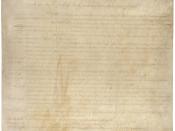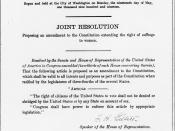The internet was started by the military in the late forties, and has since grown to an incredibly
large and complex web, which will no doubt effect all of us in the years to come. The press has
recently taken it upon themselves to educate the public to the dark side of this web, a network which should be veiwed as a tremendous resource of information and entertainment. Instead, due to this negative image, more and more people are shying away from the internet, afraid of what they may find there. We must find a way to regulate what is there, protect ourselves from what is unregulatable, and educate the general populace on how to use this tremendous tool.
''The reality exists that governance of global networks offers major challenges to the user, providers, and policy makers to define their boundaries and their system of govenment' (Harassim, p84)
The intemet is a group of networks, linked together, which is capable of transmitting vast amounts of information from one network to another.
The internet knows no boundaries and is not located in any single country. The potential the internet has of shaping our world in the future is inconceivable. But with all its potential the internet is surrounded by questions of its usage.
The intemet was named the global village by McLuhan and Fiore in 1968, but recently the internet has been more properly renamed the global metropolis. Robert Fortner defines the internet as a place where people from all different cultures and backgrounds come together to share ideas and information.
' Communication in a metropolis also reflects the ethnic, racial, and sexual inequalities that exist generally in the society. '' (Fortner, p25)
Huff2
When a person enters into a global metropolis to engage in communication they do not know who...


